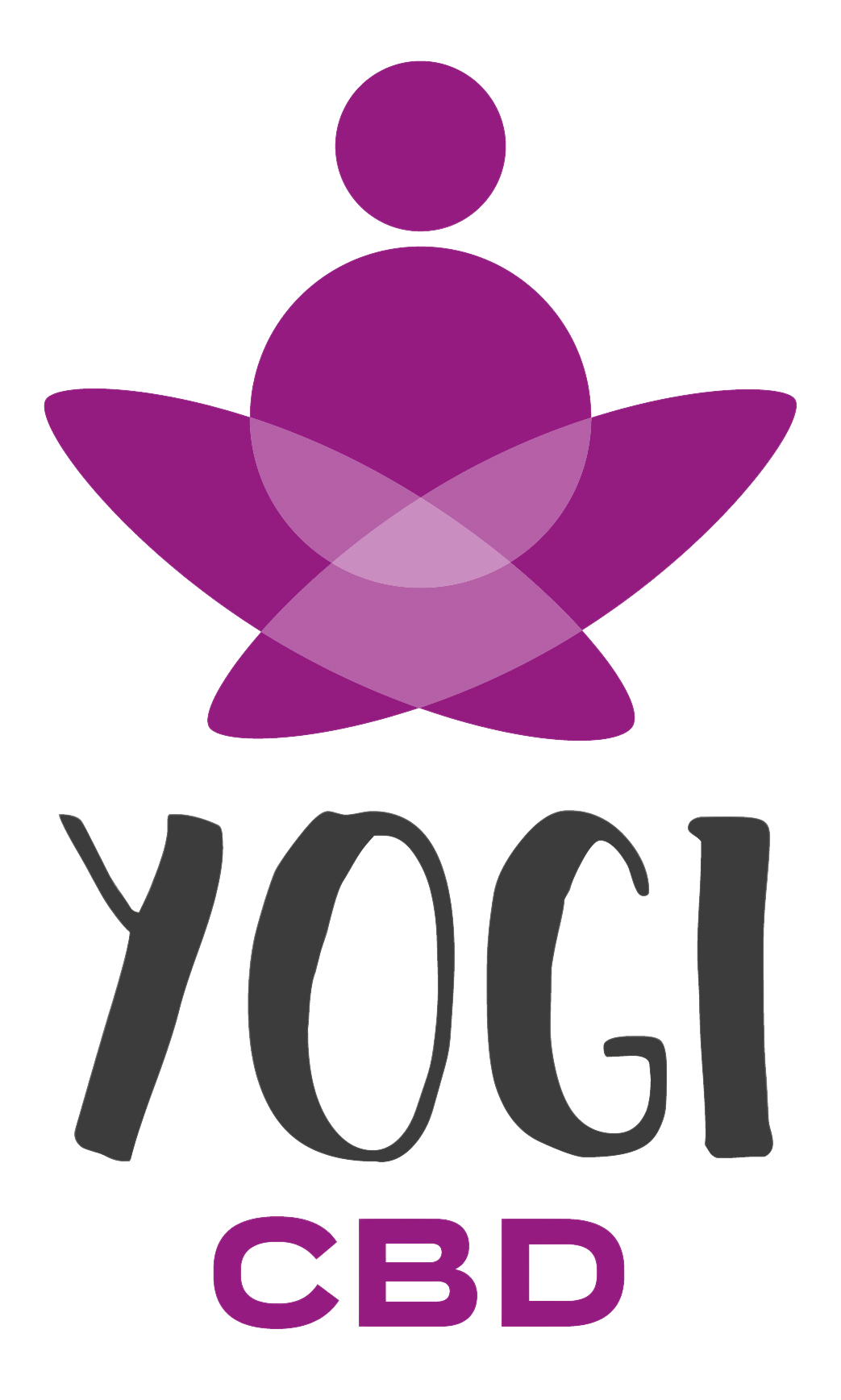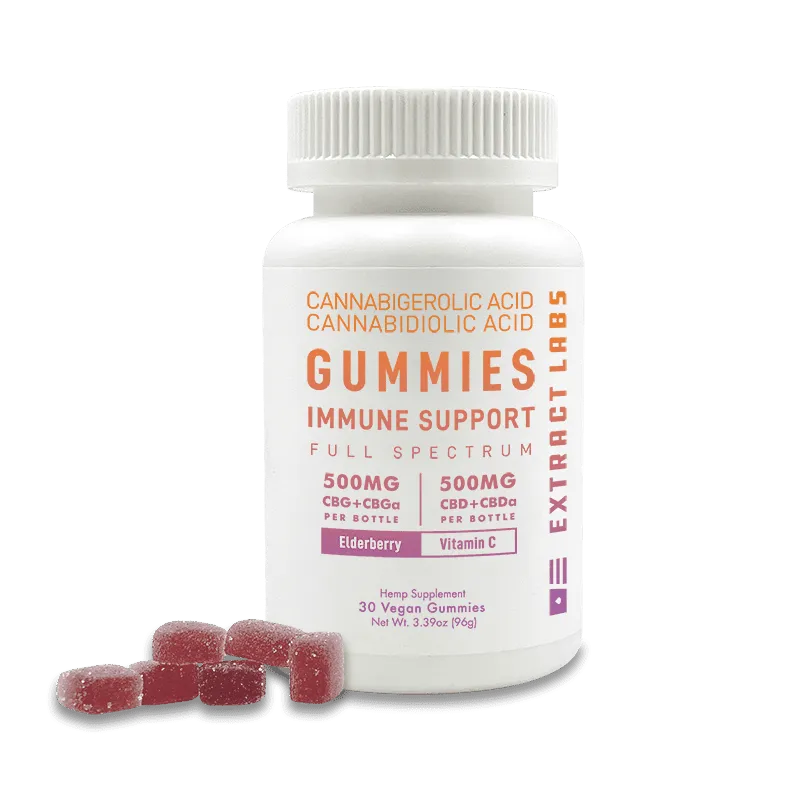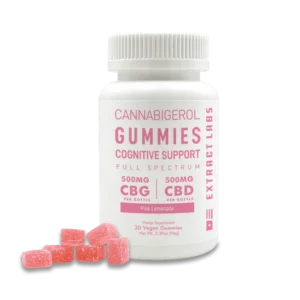CBGA CBDA GUMMIES WITH VITAMIN C | IMMUNE SUPPORT | ELDERBERRY
£69.99
Introducing Immune Support CBGa CBDa Gummies with Vitamin C. This unique blend of rare cannabinoids, including CBGa, CBDa, CBG, and CBD, is derived from raw hemp extract. With a perfect 1:1:1:1 ratio of these potent oils, our formula is completely natural and provides an optimal serving of CBD for immune support. Don’t miss out on this exceptional product!
Subscribe & Save!
We Ship Internationally!
60-Day Money Back Guarantee
Our Immune Support Gummies are unique in the market as they contain significant amounts of CBGa and CBDa, unlike most CBD gummies that only have trace amounts of these cannabinoids. Typically, the manufacturing process converts CBGa and CBDa into CBG and CBD due to heat exposure. However, our team of scientists has successfully developed a proprietary method to process these delicate cannabinoids without converting them. As a result, we have formulated a high potency oil specifically designed to support immunity, which is then used in our gummies.
BENEFITS*
INGREDIENTS
Active Ingredient: Full Spectrum Hemp Extract
Other Ingredients: Sugar, Light Corn Syrup, Water, Pectin Blend, All Natural Flavorings and Coloring, Citric Acid, Vitamin C
CBDa
What is CBDa?
CBDa (cannabidiolic acid) is another of the many chemical compounds that you can find in cannabis and hemp. It can be thought of as the raw form of CBD, and itself comes from CBGa (the mother of all cannabinoids). Here’s some more detail about the chemical processes that lead to the creation of CBDa:
CBDa is born from CBGa breaking down before it has time to be converted to CBG. The simplest way to think about the process is the hemp plant producing CBGa to fuel its growth as it matures. Then, the CBGa either converts to CBG through heat and sunlight, or the plant breaks down the CBGa during its growth cycle to naturally convert it to CBDa, THCa, and CBCa. Each of these three cannabinoids can be converted, by the same conditions, to their non-acidic compounds. THCa becomes THC, CBCa becomes CBC, and finally, CBDa turns into the CBD that most consumers are familiar with.
What is CBGa?
CBGa is getting its own turn in the spotlight. Cannabigerolic acid (CBGa) is one of over 100 cannabinoids present in the hemp plant. Many refer to CBGa cannabinoids as the “mother of all phytocannabinoids.” It is essentially a foundational compound of the cannabis plant, one of the very basic building blocks that all cannabinoids come from. CBGa breaks down into other molecules, including cannabidiolic acid (CBDa), tetrahydrocannabinolic acid (THCa), and cannabichromenic acid (CBCa). What’s more, CBGa is what’s known as an acidic precursor to CBG, which means that CBGa converts to CBG under the right conditions – usually with heat and/or sunlight.
What is CBDa good for?
What does CBDa do to you? Is CBDa stronger than CBD? These are some of the most common questions that we receive about CBDa. Well, both are non-psychoactive, so they won’t give you a feeling of being high. Scientific studies about the effects of cannabinoids are underway, and it is impossible yet to make any overarching claims about their effects. However, studies have shown that CBDa may have more effective properties than CBD. These are promising signs, and explain why so many people are interested in CBDa lately. Due to this Extract Labs prides ourselves on having one of the best CBDa oils on the market.
What is CBGa good for?
CBGa, the precursor to all other cannabinoids, may have valuable properties for human health (although scientific research is ongoing). Preliminary studies have shown potential benefits of anti-inflammatory antioxidant properties, plus benefits for patients with metabolic disorders like diabetes and dyslipidemia. So what is CBGa good for? Can CBGa help boost immunity or fight sickness? The scientific community is unable to come to a consensus, but by using a combination of CBGa and its derivatives, immune system benefits are within reach.
Is CBGa the same as CBG?
Not at all. CBGa can be referred to as the "mother of all phytocannabinoids". CBG is one of the many cannabinoids that can come from CBGa as it converts to other cannabinoids.
CBGa/CBDa health benefits?
CBGa and CBDa have become the subject of a recent study on how cannabinoids interact with the endocannabinoid system and overall health. The research found that two cannabinoid acids commonly found in hemp, cannabigerolic acid, CBGa, and cannabidiolic acid, CBDa, can bind to proteins that cause unwellness. By binding to the protein, the compounds can potentially offer new avenues to support immune wellness.
CBDa Oil vs CBDa Capsules benefits?
There are subtle differences between the best CBDa oil and CBDa capsules. As mentioned, CBDa capsules are consumed by swallowing, whereas CBDa Oil is taken sublingually. The overall impact on your wellness is the same but varies in terms of length. CBDa Capsules are easy to transport, so many opt for the softgels simply due to the convenience factor. In the end, it all comes down to personal preference.
Because CBDa capsules and CBDa oil are absorbed by the body differently, the duration of the felt effects may vary as well. Sublingual CBDa Oil will typically absorb faster into the bloodstream than a swallowed CBDa capsule. However, the benefits of a CBDa capsule may be felt longer because the way the body and liver processes the oil in the capsules.
Will CBDa or CBGa make me high?
Absolutely not. Acidic forms of cannabinoids are not any more psychoactive than their non-acidic counterparts.
Is CBDa and CBGa legal?
As long as they are sourced from hemp and contain less than the federally-mandated 0.3% Delta 9 THC level, both compounds are protected by the 2018 Farm Bill and therefore federally legal.
What is "bioavailability"?
The method by which you consume or administer cannabinoid products can affect their bioavailability, which is how much of a substance enters the bloodstream in a given amount of time.
For example, vaporizing or sublingual consumption are great ways to ingest cannabinoids, as they offer high bioavailability, meaning they will enter the bloodstream at a faster rate with short-lasting effects. On the other hand, oral consumption via capsules or edibles will enter the bloodstream at a slower rate with longer-lasting effects. Topicals offer the lowest bioavailability, as they are absorbed through the skin.
Understanding bioavailability can help you determine how much of a product you need to take, and in what form, to ensure a proper dose actually ends up in your system.








